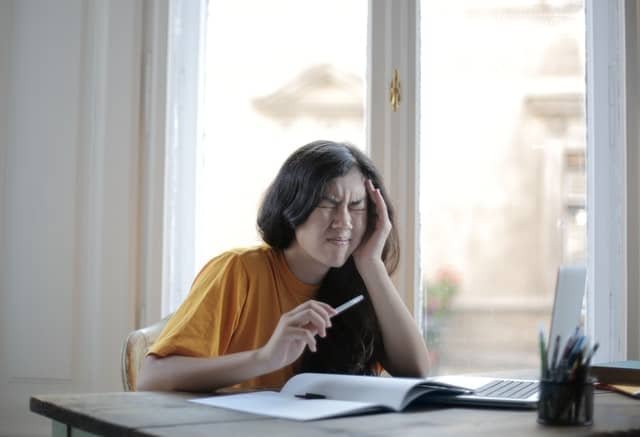
Green tea is a healthy drink, do not be alarmed. Proof of this is that traditional Chinese medicine has been using it for hundreds and hundreds of years to treat different ailments. However, like everything in this life, under certain circumstances or above a certain extent, green tea may have contraindications for you.
Why green tea is healthy
Extracted from the Camellia Sinensis plant, but subjected to less oxidation processes than black tea, green tea is considered one of the healthiest beverages that can be ingested. In fact, it is one of the least processed teas and, for this reason, it would provide higher amounts of polyphenols, powerful antioxidants that fight free radicals, helping the body to protect itself against degenerative diseases, cardiovascular diseases and even, cancer.
In recent years, green tea consumption has grown a lot in the West due to these healthy properties and also because it is considered a good complement to weight loss diets.
Despite all its benefits, it should be noted that occasionally negative effects related to the intake of green tea may occur. Below we tell you all about it and analyze each of these possible, but rare problems.
What are the contraindications of green tea?

The reality is that the appearance of any of these negative effects is rare and is generally related to excessive consumption of the infusion. Briefly and generally, green tea is contraindicated in the following cases.
- Anemia – Green tea can hinder the absorption of iron.
- Insomnia – Caffeine present in green tea can cause states of agitation and insomnia.
- Maternity and lactation: Like any caffeinated drink, green tea is not recommended in these situations.
- Caffeine Sensitivity – Caffeinated beverages can cause, especially in sensitive individuals, stomach problems, headaches, feeling light-headed, or diarrhea.
- Hypertension: Some studies have linked the consumption of green tea with an increase in blood pressure.
It should be noted that the vast majority of these negative effects are associated with the percentage of caffeine present in green tea (around 12 mg/100g). In this way, if you do not have any kind of intolerance to this compound, you should not present any adverse symptoms. In addition, as a general rule, a moderate intake should not cause any discomfort.
In any case, you know: as much as you like green tea, do not overdo it.
Possible Negative Side Effects of Green Tea Consumption
Next, we offer you a list of the possible adverse effects of taking green tea in excess or in contraindicated situations.
Stomach problems
Green tea is rich in tannins, a substance that increases stomach acids and can cause irritation, reflux, nausea and even constipation when the infusion is drunk too strong or on an empty stomach.
Although caffeine is commonly used in the treatment of headaches and migraines (in fact, many medications for these ailments contain this ingredient), some studies indicate that those who consume caffeine daily, either in form of coffee, tea, or caffeinated beverages, would be at higher risk for migraines and headaches.
Headaches
For this reason, if you suffer from these discomforts on a regular basis, it may be a good idea to reduce your intake of green tea and other caffeinated beverages.
Insomnia and trouble falling asleep
Green tea contains, in addition to low doses of caffeine, l-theanine. This compound would induce calm and, for this reason, it is often recommended to combat stress, anxiety and sleep problems. However, some experts point out that when combined with caffeine, its relaxing effect could be affected. The reality is that there is no conclusive data in this regard.
However, if you have trouble sleeping after drinking a cup of green tea, it may be contraindicated for your situation. We recommend you avoid it the next day so that, in a kind of trial and error action, you can verify if in your particular case the problem could be related to the infusion.
Would cause diarrhea
Consumed in large quantities, green tea would act as a laxative, even causing diarrhea in the most extreme cases. Various studies have associated the levels of caffeine in beverages with the presence of chronic or occasional diarrhea. Of course, there is talk of an excessive intake of said substance.
Iron absorption problems
One of the great advantages of green tea is its high content of antioxidants which, as we have already explained, are beneficial substances for the body to prevent diseases and premature aging.
The problem is that the tannins present in the tea could intervene in the absorption of iron, according to data. This situation could cause anemia and, in the case of people suffering from this deficiency, worsen their situation, as happened with a 48-year-old man, whose case is cited in said study, who consumed 6 cups of green tea a day and developed anemia presumably for this reason. If you suffer from anemia, check with your doctors about the contraindications of green tea.
Feeling dizzy
Excessive consumption of green tea has been associated with dizziness and vomiting on some occasions. Although cases are rare and counted on the fingers of one hand, if you experience these symptoms, reduce your consumption.
Elevation of blood presure
Different investigations have concluded that consuming green tea can help us reduce bad cholesterol, one of the main risk markers for cardiovascular diseases.
However, if you suffer from heart disease, they could contraindicate the consumption of green tea since a study found that drinking it could increase blood pressure, another factor to take into account to avoid triggering heart attacks and other heart problems.
In conclusion, green tea is a healthy drink whose adverse effects may affect a small group of people. However, if you are within that small percentage, you should reduce your consumption and consult your doctor to determine the amounts that you can safely ingest.
